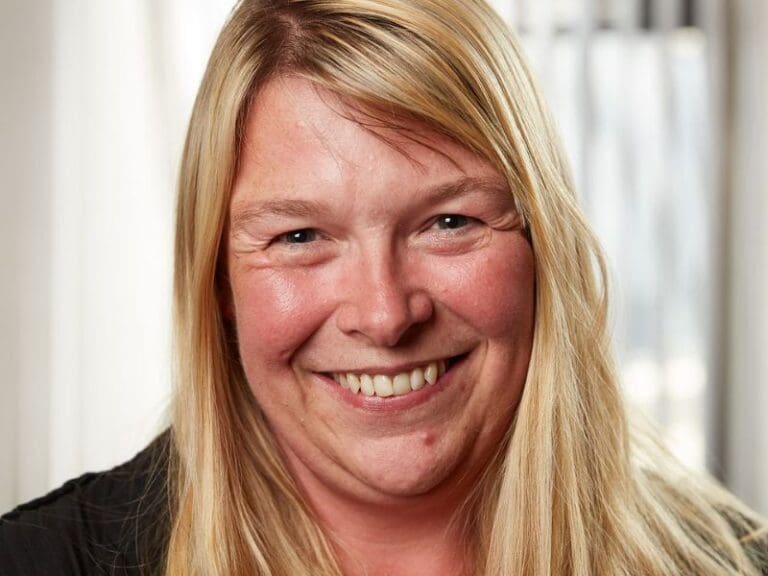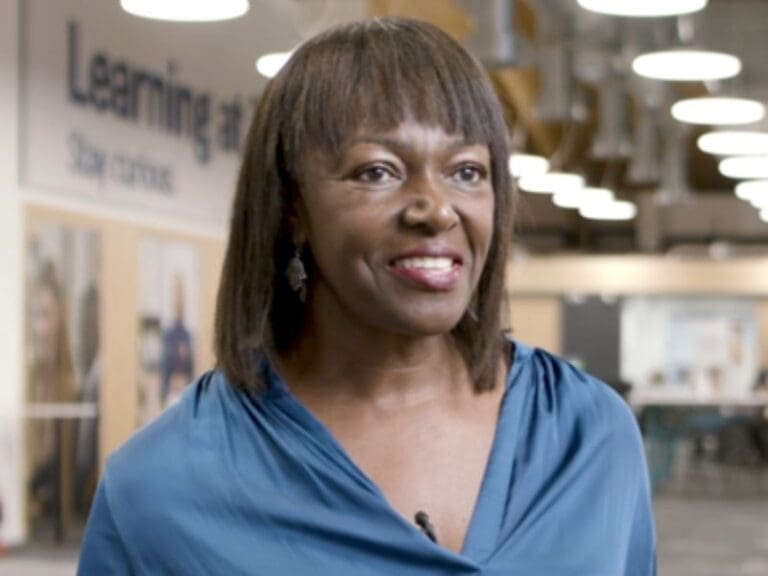Anj is a passionate leader dedicated to embedding finance and operational excellence at the heart of the organizations she serves.
Through her unique blend of servant leadership, empathy, and trust, she inspires teams to achieve exceptional results while fostering a culture of collaboration and innovation.
In her current role, Anj focuses on driving the successful execution of Emergn‘s strategy, building stronger engagement across the business, and creating a solid foundation for sustainable growth.
With over 30 years of experience in global leadership roles, Anj has been instrumental in transforming how businesses operate, integrate, and thrive. Her career includes an impressive 22+ years at IBM, where she led multiple country locations across the US, Europe, the Middle East, Africa, South America, and Asia, consistently embedding operational excellence and driving impactful change across diverse teams and markets.
Anj’s deep commitment to helping organizations achieve their full potential is matched only by her belief in the power of people, processes, and purpose to deliver lasting success.
How did you land your current role? Was it planned?
I worked at a large Blue Chip IT Company for over 20+ years. I held roles across many countries in finance, operations, commercial, transformation, M&A, you name it. But what has remained constant is my obsession with the story behind the numbers.
Joining Emergn was very intentional. After years in the corporate world, I wanted something smaller, more dynamic. I wanted a company that cared deeply about its culture and values, and where my work would make a visible impact. That’s what I found here.
What are the key roles in your field of work, and why did you choose your current expertise?
From as early as I can remember, I was fascinated by numbers. To me, they were more than symbols on a page, they were another language. Numbers told stories. They revealed patterns, truths, and sometimes problems waiting to be solved.
In corporate environments, it’s easy to be a spectator, watching as slides get presented, numbers get reviewed, and decisions get made. But I always wanted to hold the pen. I wanted to be the one shaping the story, driving the insight, offering the recommendation.
That mindset has shaped my roles across finance, operations, transformation, commercial strategy and more.
Did you (or do you) have a role model in tech or business in general?
People sometimes ask if I had a mentor or role model in the early stages of my career. The honest answer is no, not in the traditional sense. But I’ve had plenty of leaders, and I probably learned the most from the worst ones. Bad leadership is often a more powerful teacher than good leadership. You learn quickly what not to do: how not to treat people, what happens when values aren’t lived out, and how toxic cultures take shape.
On the flip side, good leadership, quiet, principled, empowering, has always stood out. That’s the kind of leadership I try to embody today.
What are you most proud of in your career, so far?
I’ve worked across cultures, geographies, and functions, and every experience has kept me sharp. But I think what I’m proudest of is making a difference in both small and big ways.
Every evening, when I walk home, I reflect on the day and ask myself: Did I make a difference today? To the company, to a person, to myself? That reflection matters.
What does an average work day look like for you?
No two days look the same in my world. One day, I’m solving a thorny operational challenge. The next, I’m mentoring a colleague or guiding commercial strategy. I spend time reviewing, advising, and making decisions. But I also carve out space to learn something new.
Are there any specific skills or traits that you notice companies look for when you’re searching for roles in your field?
Soft skills matter just as much as hard skills. Emotional intelligence. Empathy. The ability to coach, to listen, to adapt. You can be technically brilliant, but if you can’t connect with people or drive impact through collaboration, you’ll struggle in leadership.
That’s why we invest in these traits at Emergn through our ITJ (Incredible Talent Journey) framework and The Emergn Way.
Has anyone ever tried to stop you from learning and developing in your professional life, or have you found the tech sector supportive?
Access to learning has always felt sacred to me. I know too well what it costs to secure it. My father’s engineering degrees gathered dust in the UK while he worked nights to give us a shot. That shaped something in me. I’ve never taken learning for granted.
Safe environments are everything. People don’t grow where they don’t feel safe to speak up, to fail, or to try again. At Emergn, we talk a lot about “The Right Kind of Wrong”, the idea that smart failure is part of the learning journey.
Have you ever faced insecurities and anxieties during your career, and how did you overcome them?
Yes, I’ve felt impostor syndrome. Particularly as someone who doesn’t come from a technical background. I’ve walked into rooms full of engineers, developers, and product managers and wondered, “Do I belong here?”
But I’ve learned something important: being “product-centric” is not the sole domain of IT professionals. Understanding the product mindset has helped me reframe my own value: not as a technical expert, but as a strategic enabler.
Impostor syndrome diminishes when you realize you offer something essential to the table, even if it differs from what others contribute. For example, that realization is part of why we created Praxis by Emergn. To put this knowledge into practice and equip professionals from all backgrounds with the tools and mindset to become value-driven, product-focused thinkers. It’s about helping people gain the confidence and clarity to deliver results, regardless of where they start.
Entering the world of work can be daunting. Do you have any words of advice for anyone feeling overwhelmed?
Don’t wait for permission. And don’t disqualify yourself from roles just because they’re in a sector you haven’t worked in before. Say yes more often. Learn constantly.
Also, don’t be afraid of the pivot. I’ve said yes to almost every role that’s come my way, even the ones that scared me. Especially the ones that scared me.
What advice would you give other women wanting to reach their career goals in technology?
A lot of people assume that finance or commercial roles are industry-specific. But they’re not. They’re transferable. What’s harder to learn is the mindset: being operationally strong, commercially aware, and relentlessly curious.
So don’t limit yourself, don’t wait for permission, and don’t be afraid of the pivot.
Someone, somewhere, has made a sacrifice so that you could be where you are. Don’t take that for granted. Show up as your best self every day. Learn constantly. And always, always pay it forward.







